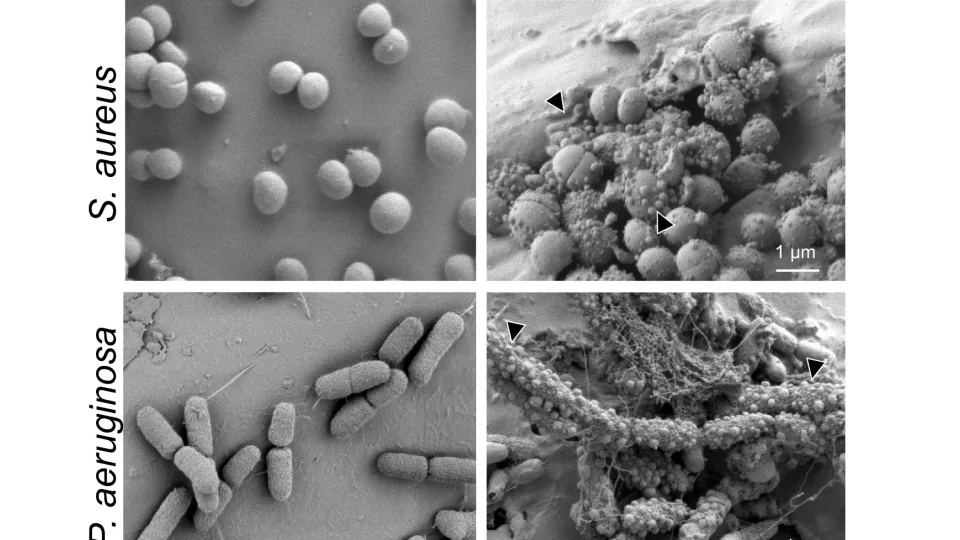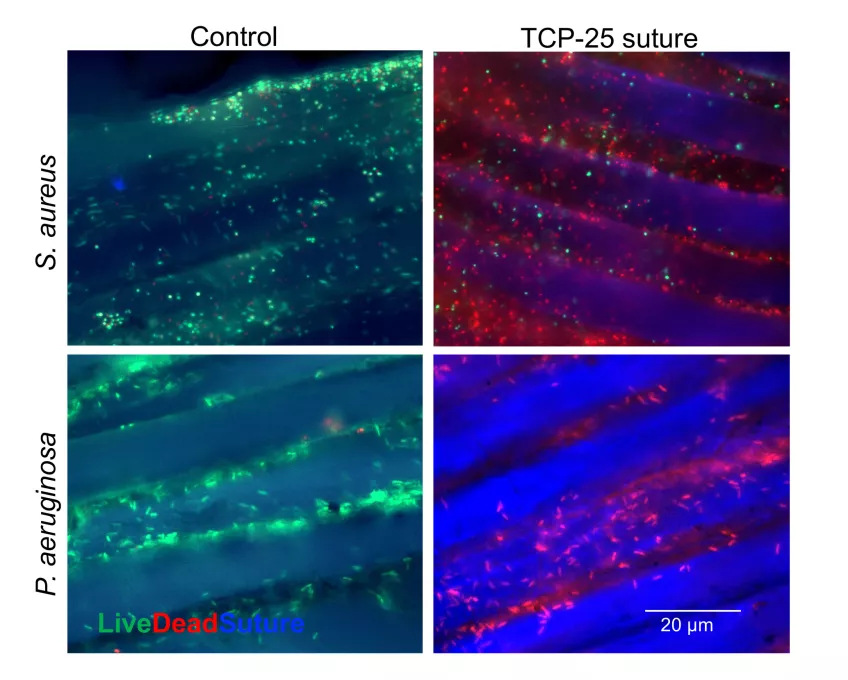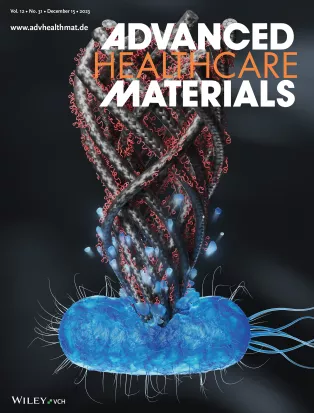The study has been featured as a cover image in the renowned journal Advanced Healthcare Materials.
Globally, more than 300 million surgical procedures are performed annually, with approximately up to one in ten patients experiencing infections as a result. A significant portion of these infections originates from bacteria carried by the patients themselves.
"Bacteria thrive on surgical sutures, finding a protective surface inside the body to flourish. However, by coating the sutures with a peptide, we have demonstrated the ability to reduce bacterial growth and inflammation," says Manoj Puthia, researcher at Lund University.
Puthia is one of the researchers leading the collaborative study between Lund University, the University of Copenhagen, and the Bioinformatics Institute in Singapore.
Research on the antibacterial peptide effective against bacteria, their toxins, and inflammation, has been ongoing for years. The idea to explore the peptide's potential in surgery developed when Artur Schmidtchen, a dermatologist involved in surgery, received sutures in his hand coated with the antiseptic agent triclosan.
"While I understand the desire to reduce infections, it didn't feel right to use sutures with a substance reported to have various side effects and increase resistance development. This prompted me to investigate whether the natural peptide we have been researching for many years could work," says Artur Schmidtchen, one of the researchers behind the study.
The concept proven in mice
Initially, the researchers demonstrated the feasibility of coating sutures with the peptide. Subsequently, they expanded the research to test its effectiveness in a living organism. The current study, conducted in experimental mouse models, reveals that when bacteria contaminate the peptide-coated sutures, they perish. Simultaneously, inflammation around the sutures decreases compared to the control group.
"The peptide has a dual action: it prevents inflammation and kills bacteria. The coating does not adversely affect the sutures in terms of strength, and as they degrade, we observe that peptide fragments remain active against bacteria," explains Manoj Puthia.
The peptide is also being utilized in the development of a new wound treatment in the form of a gel, which is now being evaluated in clinical studies.
"Now we need to further develop the concept to standardize and optimize how the peptide is applied to sutures and its release. We recognize the potential in this, but to bring it to patients, collaboration with other industry stakeholders is crucial. Taking our fundamental discoveries about the body's own protective mechanisms against infection and inflammation to various clinical applications is both challenging and exciting," says Artur Schmidtchen.




